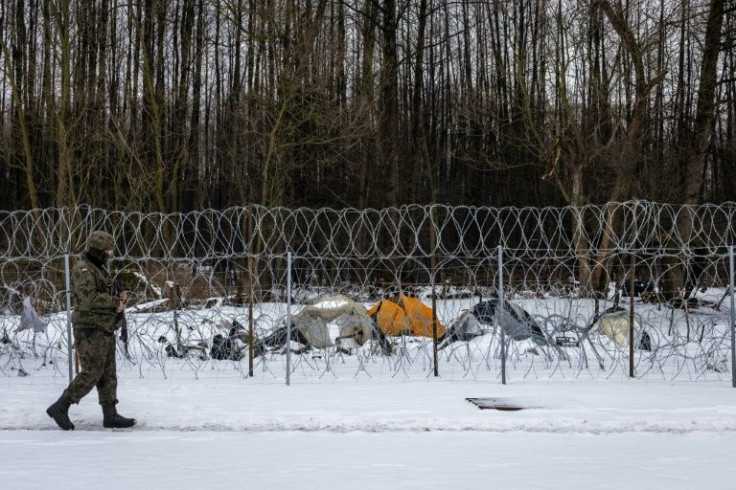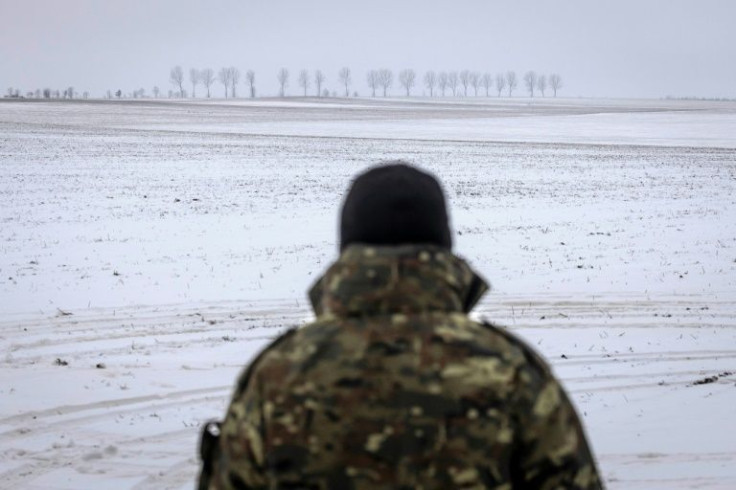Media Under Watch On EU's Frozen Eastern Frontier
Squeezed into the back of a military jeep driving along frozen unpaved roads on the Poland-Belarus border, a group of journalists is being taken into a restricted zone under strict surveillance.
Soldiers with assault rifles slung over their shoulders can be seen spaced out along the EU's eastern border, patrolling lines of razor wire that stretch out as far as the eye can see.
A makeshift shelter partially covered in tarpaulin and wooden planks of wood offers some respite for the soldiers, who were deployed to the area following a sharp rise in migrant arrivals.
Nearby, a car mounted with speakers blares out a message in several languages urging migrants to stay on or return to the Belarusian side.
"Migrants are still trying to cross the border in groups of 10 or 20. Last year, it was groups of hundreds of people," said Krystyna Jakimik-Jarosz, a spokeswoman for the border guards.

The West accused the Belarusian regime of orchestrating a migrant crisis last year as a form of retaliation against EU sanctions.
Belarus has denied this and urged the EU to take the migrants in, although it has since repatriated several thousand back to the Middle East.
Confronted with a sharp increase in arrivals, Poland in September banned media and aid groups from the immediate border area citing security reasons, and put up razor wire and deployed soldiers.
Aid groups have since accused both Poland and Belarus of violating migrants' rights and media rights groups have criticised the restrictions.
The Polish Supreme Court has also declared the ban on the media "incompatible" with the law.

Facing criticism, Poland's populist government in December began organising trips for journalists to the restricted area but only under strict controls.
"We want to show what the situation on the border looks like," Jakimik-Jarosz said, who shadowed the media group along with two border guards who hid their faces so as not to reveal their identity.
Around 100 journalists have so far been allowed in.
"At the beginning it was above all Polish media who could visit the zone. Foreign journalists had to be specially verified," the spokeswoman said.
Coverage of the start of construction this week of a border wall being built by Poland along 186 kilometres (115 miles) of frontier was also heavily restricted.
"This is about your security and ours. If something were to happen, we would be responsible," Jakimik-Jarosz said.
"But it is also to protect ourselves to ensure that we can do our job of protecting the border."
She said soldiers and border guards last year found themselves "having to protect themselves sometimes from journalists who pointed cameras in their faces and asked them to identify themselves".
Of the media ban, she added: "I understand that this is not always satisfactory for everyone".
© Copyright AFP 2024. All rights reserved.





















